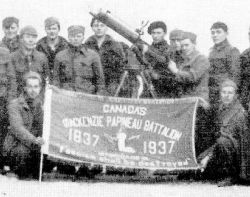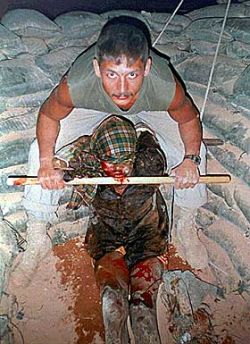Halifax Media Co-op
News from Nova Scotia's Grassroots
Heretical Memories
Remembrance Day has always been a source of unease for me even before I began to question the reactionary role of patriotism. Remembering things that I don’t have any memory of is hard enough, but to remember war, death, and dismemberment, well too be honest, as a child I couldn’t. Don’t get me wrong, I watched plenty of war movies, and I understood from books, images and family stories what war meant. I also had a sense (childish by nature) of what was meant by the term sacrifice.
What I guess I didn’t have was a sense of what death-dealing and the nation had in common. It seemed false when people read poems about Flanders Fields, politicians laid wreaths beside granite tombstones and gave speeches. Moments of silence didn’t ring true. What was I supposed to be remembering exactly: The war, the troops, the nation, my freedom?
As I grew older I came to realize that it was nationalism and capitalism that were the problem. They had created an ideology that allowed for the cheapness of human life. The rich and powerful had manufactured a society that derived profits from death. Sure there had been wars in which the bad guys were truly bad. Who can object to fighting Nazis? But I wonder what was the point of the human killing floor of the Somme? Who can explain that nonsense to me? For the last many years I have simply rejected Remembrance Day outright. Lately, I have been wondering, is there not a way to remember than can be emancipatory?
Maybe the answer resides in having a heretical memory. To be able to construct a narrative from the leftovers of the current form. We can understand that there were those who fought and died for worthwhile causes with next to nothing to gain. Those from the lowest wrung of society who gave much and received little. Here maybe the memory of the Mackenzie-Papineau Brigade can serve as point of reference for working-class remembrance. These individuals went over to Spain to fight the fascist menace against the wishes of the Canadian state because it was the right thing to do. Of course they won’t be officially memorialized or praised but their radical gesture can serve as a bright light (warts and all) of remembrance.
The Canadian peace movement is involved in pushing for the remembrance of the dead civilians and victims of war that are too easily forgotten. This is a worthwhile path to follow. However, if we are to take this to our logical conclusion we must also remember the crimes perpetrated in our name. The torture, killings, colonizations, invasions and occupations should not be flushed down the memory hole. Shidane Arone should be remembered. And Clayton Matchee should not be forgotten either . The construction of killers and tortures is also the legacy of armed conflict and we should never forget that.
By piecing together the uncounted remainders of the standard state narrative and constructing our own working-class history we can begin to understand the best and the worst in our collective self. Robert Ingersoll a long dead American orator once quipped, “heresy is a cradle; orthodoxy is a grave” To remember heretically will surely be unpopular but it is the only way if we are serious about constructing a just future.
“The defeats and victories of the fellows at the top aren’t always defeats and victories for the fellows at the bottom.” -Brecht
www.hammerhearts.wordpress.com
The site for the Halifax local of The Media Co-op has been archived and will no longer be updated. Please visit the main Media Co-op website to learn more about the organization.




